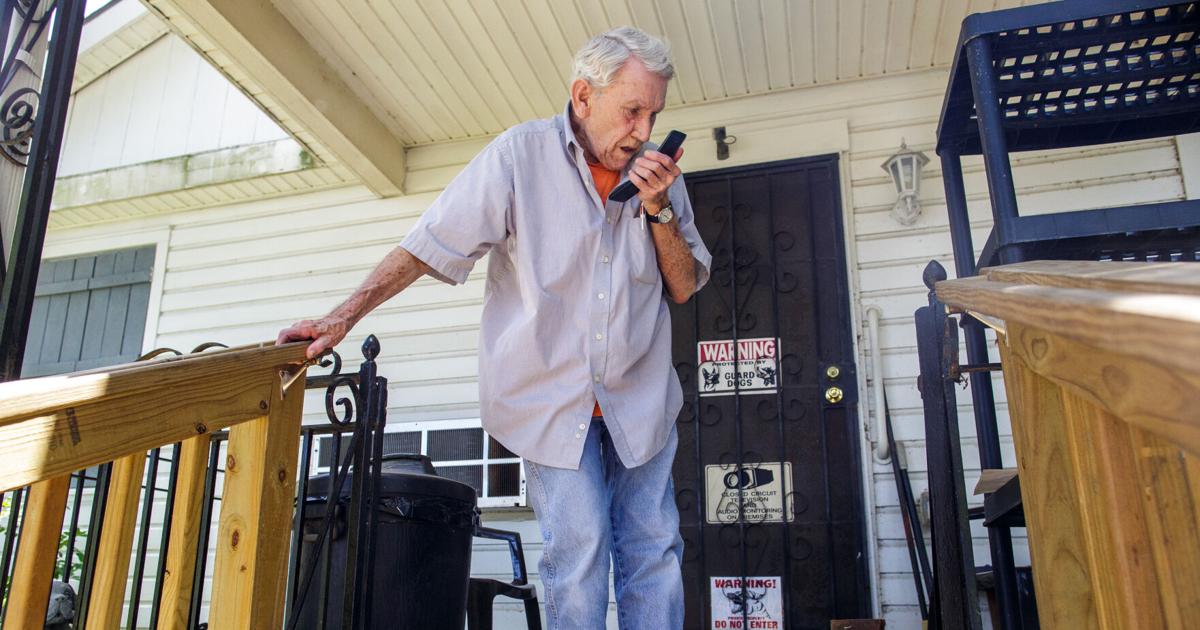Every day, the New Orleans Council on Aging fields about 30 calls from older adults trying to make sense of their Medicare options. Some need help comparing plans during open enrollment, which began last week. Others are panicked over rising prescription prices and out-of-pocket costs while on a fixed income.
“The doctor prescribes a medication that’s $700. Your insurance pays $200. It may as well be $7,000,” said Nancy Grossley, a former social worker who now answers the phone at NOCOA and guides seniors through options several times a week at information sessions.
Even with insurance, many older adults are forced to make impossible choices.
“You do end up spending money on medication and doctors’ visits and procedures you can’t really afford,” Grossley said. “But then you have to afford it.”
During this year’s Medicare open-enrollment period, which continues through Dec. 7, advocates and new data suggest that Louisiana’s seniors face steep challenges accessing and affording care.
The state ranks last in the nation for how well Medicare serves its residents, according to the 2025 State Medicare Scorecard, an annual ranking from the Commonwealth Fund, which compares the 50 states and the District of Columbia across 31 measures of access, quality, affordability and health outcomes.
Poorer, sicker seniors
Medicare is the federal health insurance program for people 65 and older and for some younger people with disabilities or serious illnesses. In Louisiana, roughly 1 in 5 people are Medicare enrollees, amounting to roughly 940,000 people, according to a 2024 analysis from KFF.
David Radley, study author and a senior scientist at the Commonwealth Fund, a century-old nonprofit that works to improve health outcomes, said Louisiana’s older residents face “a really tough situation.” They’re sicker and poorer than elderly people in most other places.
“Louisiana is a very low-income state,” said Radley, pointing out that one-quarter of older adults in Louisiana are below the poverty level, compared to 19% nationally. “The cards are stacked against beneficiaries in the state.”
Nearly 7 out of 10 seniors in Louisiana have three or more chronic health conditions, according to the report, more than every state except Alabama. And roughly 1 in 3 Louisiana seniors on Medicare received a medication considered unsafe for older adults — the highest rate in the nation.
The data also show that 6% of adults 65 and older in Louisiana went without medical care due to cost, the highest rate in the country and nearly four times higher than Vermont’s 1.6%. Younger people in Louisiana went without care even more often, at 17.5%.
While Medicare has driven huge improvements in access to coverage for older adults, it can’t fully make up for years of limited access to care earlier in life.
“Sick 45-year-olds become sick 65-year-olds,” Radley said. “Affordability is still a major problem earlier in life, and those problems carry over once people reach Medicare.”
‘A very low starting point’
Louisiana’s poor performance in national Medicare rankings is a symptom of broader, deeply rooted problems, not simply a failing of the program itself, according to researchers. Decades of poverty, low public-health investment and weak social supports have left many older residents sicker and more vulnerable long before they reach retirement age.
“We have a very low starting point in terms of resources, both personal and societal,” said Dr. S. Michal Jazwinski, founding director of the Tulane Center for Aging.
Louisiana ranks within the top 10 nationally for Medicare spending per enrollee, depending on the program, according to a KFF analysis — yet outcomes remain poor. The state does not invest as much in public health that might influence the overall health of the population — about $25 per person, among the lowest in the nation.
“Even though we’re spending more (on Medicare), we’re dealing with a population that’s at greater risk because of social determinants of health — things like poor housing, food insecurity, low education levels, and limited access to care,” Jazwinski said.
At the senior center, it’s not uncommon for people to need help with transportation, affording groceries or keeping their lights on, Grossley said.
Poor health is a multifaceted problem, said Jazwinski, but if he had to pick one area to focus on, he’d improve education.
“Education is the key to change,” he said. Early investments in health education, job opportunities and economic stability “would raise the health of the entire population, not just older adults.”
